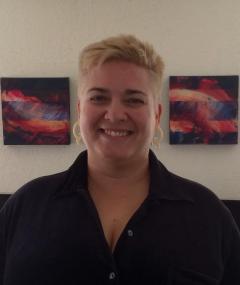Organizers
Chelsea Gordon
Teenie Matlock

Timothy Shea

Ayme Tomson

Colin Holbrook

The goal of this interdiscplinary workshop is to discuss advances in research on mental simulation in philosophy, psychology, neuroscience and linguistics. Major themes will include definitions, mechanisms, and applications of simulation across these interdisciplinary fields.
Mental simulation, simply stated, concerns how human mental processes model external processes and states. This occurs continually in everyday cognition. For example, mentally rehearsing how to hit a baseball before actually hitting it or replaying the sound of fingernails on the blackboard. Mental simulation has become an important research topic in many fields, including philosophy, psychology, linguistics, neuroscience, computational science, and literature. Some aspects of simulation are heavily debated, including the extent to which mental simulation is grounded in or linked to physical action and perception, the mechanisms that drive it, and its utility in everyday life. Research on mental simulation has occurred primarily within, not across disciplines, even though interdisciplinary work would lead to deeper insights and advance theory in this area.
We are bringing together experts and interested researchers with very different approaches to studying mental simulation to generate shared understanding of topics related to mental simulation, as well as to motivate new directions for exploring the definitions, mechanisms, and applications of simulation.
We are committed to advancing the visibility and inclusion of women in cognitive science. Our invited speakers and participants will thus reflect the diverse contributions of women to the study of mental simulation.
The 2018 Mental Simulation Workshop will be held on Tuesday, October 2nd at the University of California, Merced campus.
The workshop will include invited talks from distinguished researchers in the field of mental simulation and extended working groups aimed at facilitating interdisciplinary collaborations.
Organizers intend to assemble a guest issue in an interdisciplinary scientific journal to disseminate new theoretical and applied views based on working group discussions. In addition, participants are encouraged to join in grant proposals and other inter-campus collaborations.
Workshop Location: UC Merced, 5200 Lake Road
| Schedule | |
|---|---|
| Monday - Distinguished Cognitive Scientist Award | |
| 4:30 | Lawrence Barsalou Public Talk: Room COB 105 |
| 6:00 | Distinguished Cognitive Scientist Reception: S&E 2 Breezeway |
| Tuesday - Simulation Workshop: Crescent Arch Room, Half Dome | |
| 9:00 | Coffee and Pastries |
| 9:10 | Welcome from the Organizers (Chelsea Gordon) |
| 9:30 | Simulation semantics in the wild (Teenie Matlock) |
| 10:00 | Invited Talk (Lawrence Barsalou) |
| 11:00 | Group Discussions |
| 12:00 | Lunch |
| 1:00 | Lightning talks |
| Lisa Libby, Ohio State University | |
| Seeing meaning: How perspective shapes the function of imagery | |
| Tobias Gerstenberg, Stanford | |
| What happened? Reconstructing the past through vision and sound | |
| Martha Alibali, University of Wisonsin, Madison | |
| Gesture as Simulated Action: Theory and Evidence | |
| Sangeet Khemlani, Naval Research Laboratory | |
| Computing inferences from simulations | |
| David Vinson, Accenture Technology Labs | |
| Applications of Mental Simulation in Enterprise AI | |
| 2:00 | Group Discussions |
| 3:00 | Coffee Break |
| 3:30 | Invited Talk (Mary Hegarty) |
| 4:30 | Final Words |
| 5:00 | Reception Dinner |
Invited talks will included extended Q&A.
Lawrence Barsalou Invited Talk
Developing interventions to change simulations that motivate eating
In response to appetitive cues for food, people often consume impulsively, even when not hungry. Although sound nutrition knowledge and healthy eating intentions may exist, the desire to consume unhealthy food can still dominate. What is the nature of the cognition that produces such strong desire, together with unhealthy eating behavior that may follow? The perspective of grounded cognition offers a natural account, utilizing the constructs of simulation, situated conceptualization, and pattern completion inference. Several lines of research (both laboratory and field) support this account. If it’s correct, then intervening on the simulations that motivate eating should offer one means of changing eating habits (when desired). Two types of intervention are presented, along with empirical findings that bear on each. Because simulation appears central to eating, it offers a rich domain for studying the mechanisms that underlie it and their effects on behavior.
Mary Hegarty Invited Talk
How mental simulation and analytic thinking collaborate in spatial thinking
Mental simulation can be dissociated from reasoning based on descriptive knowledge in that it depends on different abilities and memory stores, is expressed more easily in gesture than in language, exhibits analog properties, and can result in correct inferences in situations where people do not have correct descriptive knowledge. Although it is frequently accompanied by imagery, mental simulation is not always a process of inspecting a holistic visual image in the ‘mind’s eye’ in that mental simulations can be constructed piecemeal and can be used in conjunction with non-imagery processes, such as task decomposition and rule-based reasoning. I will discuss how mental simulation is used in conjunction with more analytic thinking processes in three situations (1) mechanical reasoning, (2) taking spatial ability tests and (3) learning and problem solving in organic chemistry.